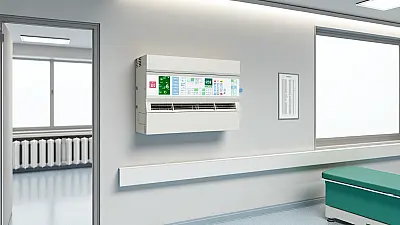EVANSVILLE, WI - State health inspectors documented multiple food temperature violations at Evansville Manor Nursing and Rehab during a May 2025 complaint investigation, finding breakfast items served at dangerously low temperatures that failed to meet federal safety standards.

Cold Breakfast Items Pose Food Safety Risks
During the May 13, 2025 inspection, surveyors tested a breakfast tray and discovered scrambled eggs at just 88.3°F - nearly 50 degrees below the required holding temperature of 135°F. The bacon registered even lower at 77.5°F, while toast arrived cold at 74.8°F with unmelted butter still sitting on top.
The temperature violations represent more than comfort issues. When hot foods drop below 135°F, they enter what food safety professionals call the "danger zone" - temperatures between 40°F and 140°F where bacteria multiply rapidly. Scrambled eggs held at 88°F can develop dangerous levels of Salmonella or E. coli within two hours, potentially causing severe gastrointestinal illness in elderly residents with compromised immune systems.
The surveyor noted the scrambled eggs were "cold and tasteless," while the bacon was "cold and chewy" - conditions that not only affect palatability but also indicate the food had been sitting at unsafe temperatures for an extended period.
Facility Acknowledges Ongoing Problem
The Dietary Manager admitted awareness of the cold food issue, revealing a systemic problem rather than an isolated incident. "DM D indicated he is aware of the issue with cold food," according to the inspection report. His proposed solutions - having residents eat in the dining room or sending trays back for replacements - place the burden on residents rather than addressing the root cause.
The facility had recently invested in new insulated food carts in December, yet the problem persisted five months later. The Dietary Manager blamed nursing staff, stating "he feels the problem is the nursing staff need to pass the trays out faster," indicating a breakdown in coordination between departments that directly impacts resident care.
Resident Reports Chronic Cold Food Issues
A cognitively intact resident interviewed during the inspection confirmed this was not an isolated occurrence. When asked about cold food frequency, the resident stated "it is pretty much always cold," indicating a pattern of ongoing food service failures affecting multiple residents over time.
For nursing home residents, many of whom have limited control over their daily lives, meal times represent important moments of comfort and normalcy. Consistently receiving cold, unappetizing food can lead to decreased appetite and reduced nutritional intake - particularly concerning for elderly individuals who may already struggle with maintaining adequate nutrition.
Temperature Standards Exist for Safety Reasons
Federal regulations require hot foods be maintained at minimum temperatures to prevent foodborne illness. The facility's own posted procedures specify that egg dishes must be cooked to 160°F for 15 seconds and all hot foods must be held at a minimum of 135°F during service.
These temperatures are not arbitrary - they're based on decades of food safety research. Maintaining proper temperatures prevents bacterial growth that can cause serious illness. In nursing home populations, where residents often have weakened immune systems, chronic conditions, and difficulty fighting infections, foodborne illness can lead to hospitalization or death.
The inspection found the facility's food temperature monitoring system had failed at multiple points. Despite having temperature requirements posted and new insulated carts, the food reaching residents fell far below safe levels. Even the oatmeal, at 124°F, failed to meet the 135°F minimum holding requirement.
Additional Issues Identified
Beyond the primary temperature violations, the inspection revealed concerning attitudes toward food quality. When shown the cold toast with unmelted butter, a Registered Nurse acknowledged "that does not look good," yet the problem continued unchecked. The facility's response focused on workarounds rather than systemic solutions - suggesting residents eat in the dining room or request new trays rather than ensuring all residents receive properly heated meals in their rooms.
The inspection also documented that meats should be served at 165°F according to the Dietary Manager, yet no system was in place to verify temperatures at the point of service to residents. Without temperature checks at delivery, the facility cannot ensure compliance with food safety standards or protect residents from potential foodborne illness.
Full Inspection Report
The details above represent a summary of key findings. View the complete inspection report for Evansville Manor Nursing and Rehab, LLC from 2025-05-15 including all violations, facility responses, and corrective action plans.
💬 Join the Discussion
Comments are moderated. Please keep discussions respectful and relevant to nursing home care quality.